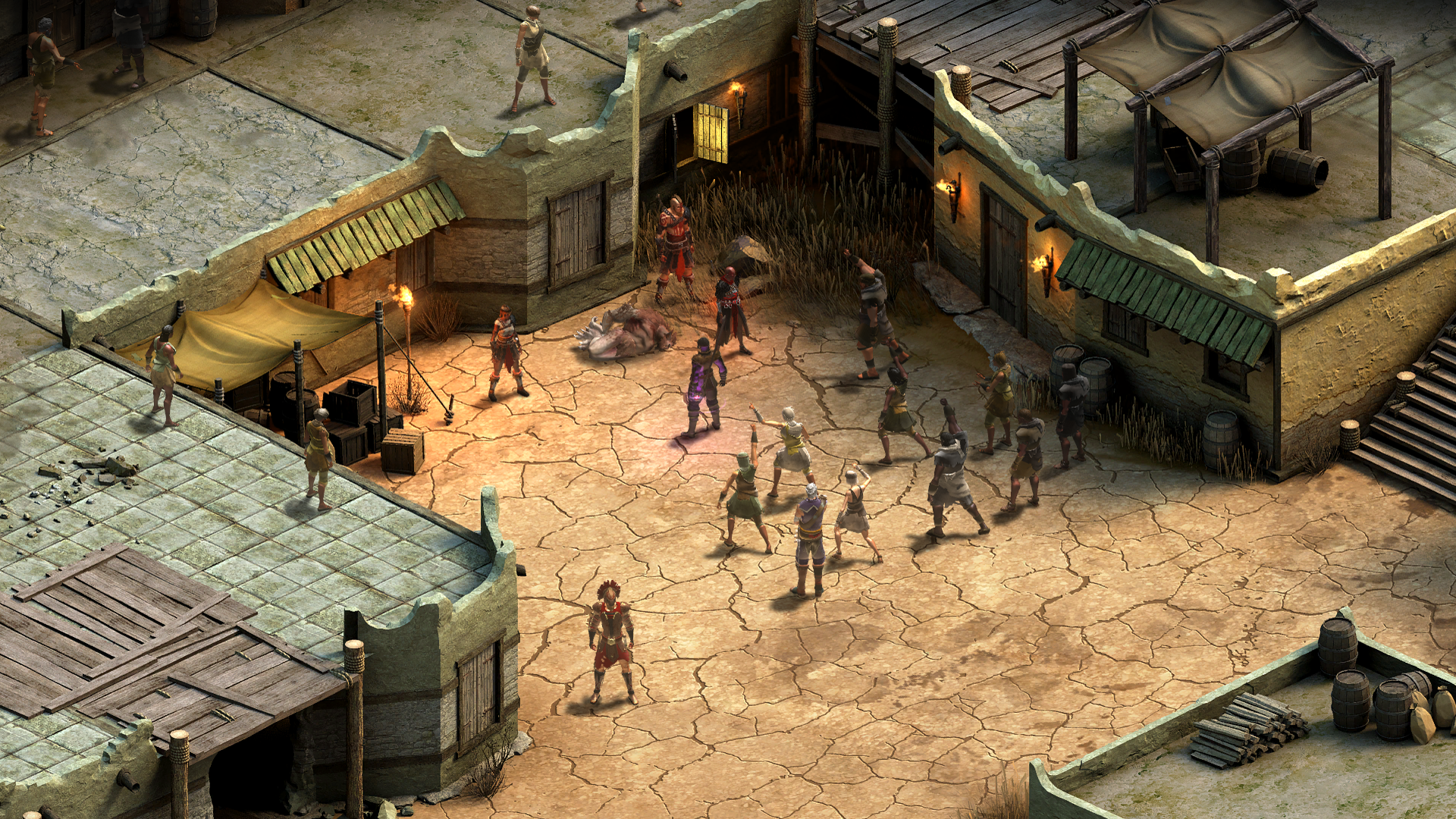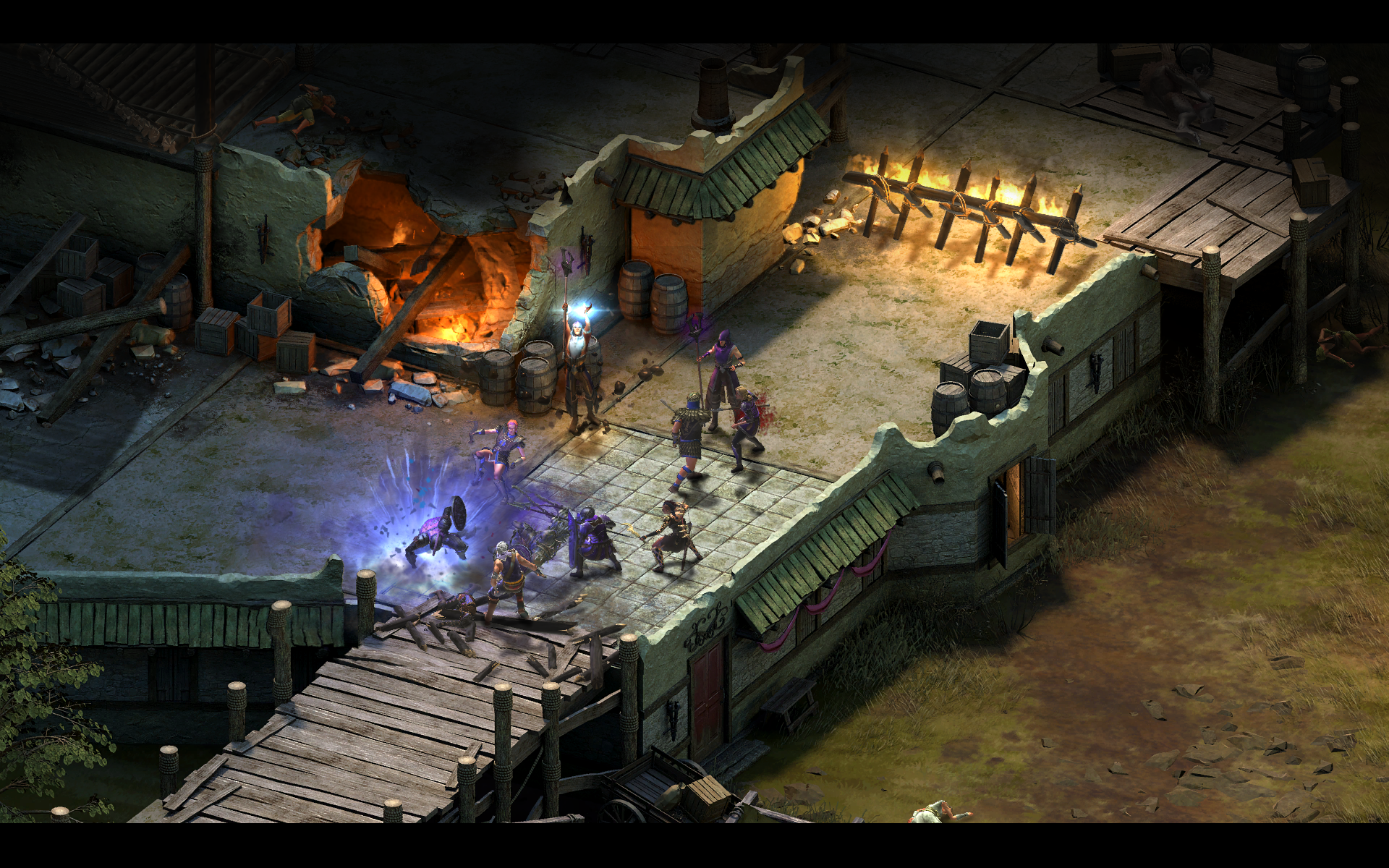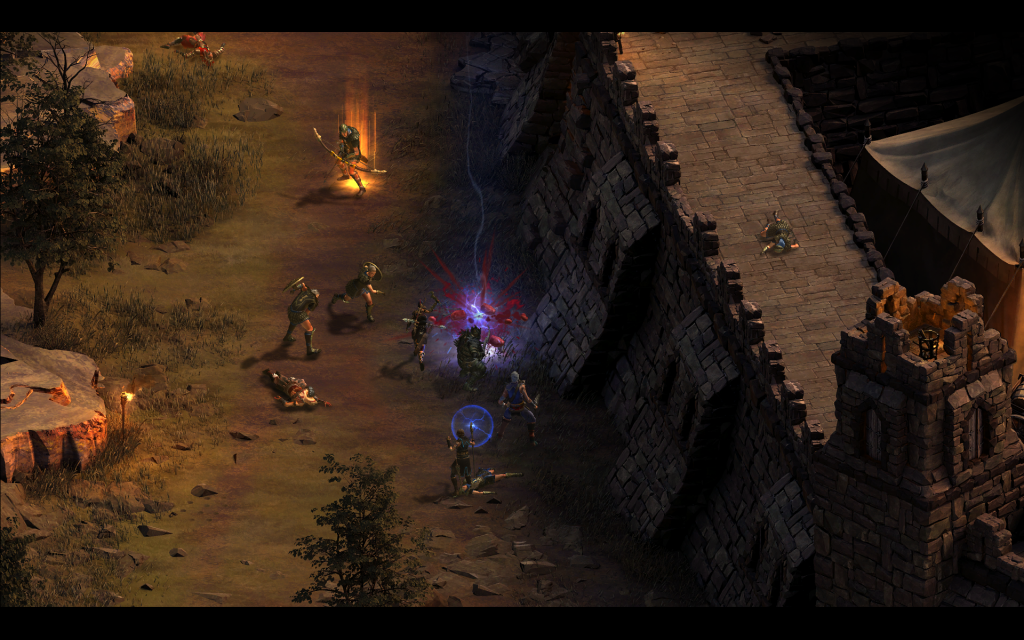In the world of Tyranny, the development team at Obsidian Entertainment have asked, "What if evil won?" However, instead of the game revolving around trying to save the world and overthrow the tyrant, it asks what you, the player, would do for your own survival. In a Dungeons and Dragons sense, would you be neutral-neutral or chaotic-evil? You can try to be chaotic good or even neutral good, but you will not survive for very long. But the big question is, does it really matter how you choose to be? Does what you choose affect anything, especially the endgame?
The lead developers for Tyranny sat down with me at PAX West to talk about choice in RPGs, and how important these choices really are in Tyranny. After all, as Lead Narrative Designer Matt MacLean pointed out from their PAX West panel, an "RPG is a world that reacts to you." Without choices, how can a world react? Also, what should the world react to?
"You want a choice to be something you can actually pay off on, where you're able to see the consequences of that choice, and actually have interesting quests and dialogue play out from those choices. That is a good choice, one you want in an RPG," Tyranny Game Director Brian Heins said. "A bad choice is one that is purely for flavor, that has no impact on gameplay or story. It's a false choice, one that lets the player think they have a say in what's going on when they really don't."
And we've all played RPGs or games with "false choice" exactly like that, haven't we?
"We also tried to avoid another type of false choice where its only purpose is to screw you over," MacLean added. "The game that comes to mind is a really old one, Sierra Games' King's Quest, where you have a choice to push a button, and when you do, oh hey you're dead. Well, why did you give me that option? Oh, so I could see what happens. That's not a choice, that's just seeing something that can be done."
"There's also the problem of weeding out choices that break other choices," he went on. "For example, we're not going to give you an option to rob a bank, and then later down the line let you invest in and get a job at that bank."
"To elaborate on that point," Obsidian Design Director Josh Sawyer jumped in. "A lot of the times we think about choice and consequence we think what are a variety of players likely to want with that circumstance and what will they want to do to express the mechanics of their character or the personality of their character. As such, what would seem to be a 'false choice', if it provides entertainment or a reaction to the player, like making them laugh, then that's also a good choice to implement."

However, usually when we have choices in games such as this, the choice often lies on morality, whether we're being good or evil. But in Tyranny, you play as a hand of justice from the ruling tyrant. It's up to you to decide how that justice should and will be served. You won't survive by being that paragon of niceties. Those who enjoy finding ways to kill everyone in a game will have no problems jumping in with both feet, but what about those who have a hard time being mean? What choices will get them into the tyrannical spirit?
"Making people fear you will be as rewarded as getting people to like you," Sawyer admitted.
"But," Level Designer Denise McMurry cut in, "with this game sometimes the nice option isn't necessarily the nice option because the person you're talking to is not a nice person. It seems nice, but then you will discover that being nice and helping them caused a terrible, terrible thing."
"Also, you aren't playing as a big evil army going to conquer nice people," MacLean explained. "The people you are conquering have their own flaws that may make you think that. hey, perhaps the Overlord does have it right, because actually, these cultures are kind of awful too."
"They certainly provoke you too," Sawyer said. "You may show up and say, 'Hey, native people,' and they will respond, 'Hey, asshole.' They will really test your patience sometimes, so it becomes easy to quickly decide you're done trying to be nice to people."
"Really, I'd tell people the best way to embrace Tyranny is to not do what you would normally do," Narrative Designer Megan Starks laughed. "You'll see how fun it is to play a character you typically do not choose to."

The entire team spoke at great length about how much fun it is to experiment with the choices and see the various rabbit holes you can go down with the terrible or not-as-terrible things you can do. I remembered my time with Pillars of Eternity, a game I still have not completed, so I had to ask, how long is Tyranny? If what makes the game so great is seeing all the variations, it can't be as long as Pillars.
"It's quite a bit shorter," Heins explained. "A typical playthrough runs about 20 to 25 hours. We wanted something that would be shorter than Pillars of Eternity and something that had a high focus on replayability. Those who want to see many of the effects of choices will get a lot out of the game, but we also know people want a game they can finish in just a couple of weekends."
That is how important choice is for this team; they want players to see just how much choice affects the world by creating a more densely compact experience instead of a massive, sprawling 100-plus hour game.
No release date yet for Tyranny, but the team did say it would release this year, 2016.







